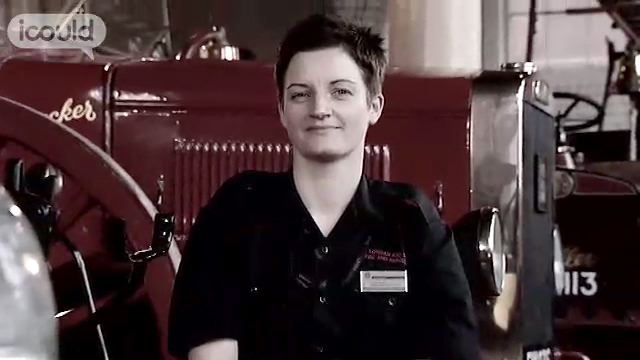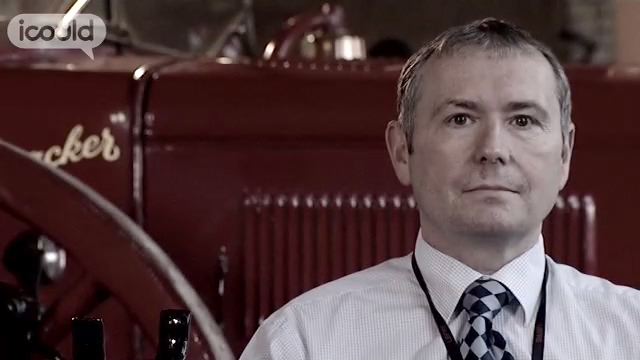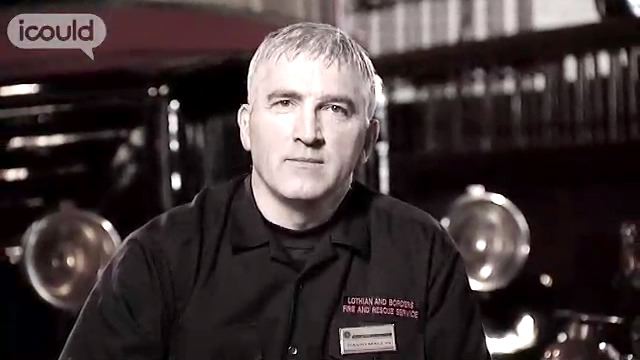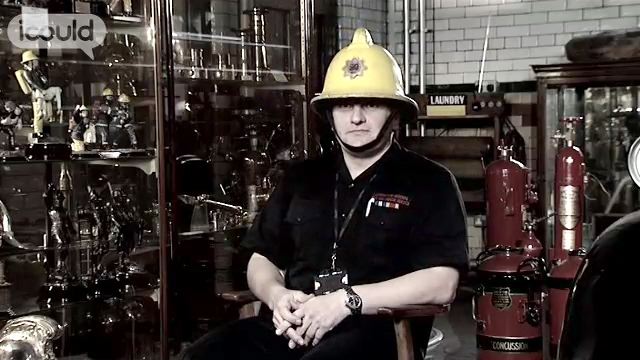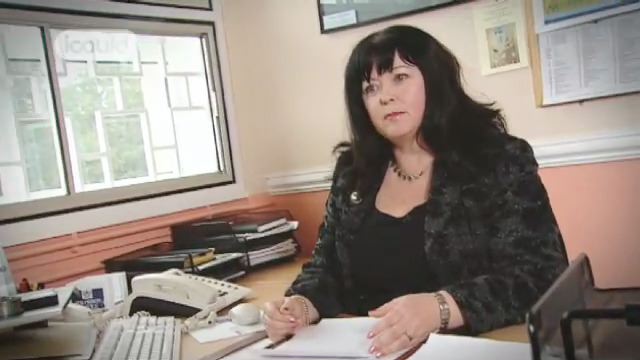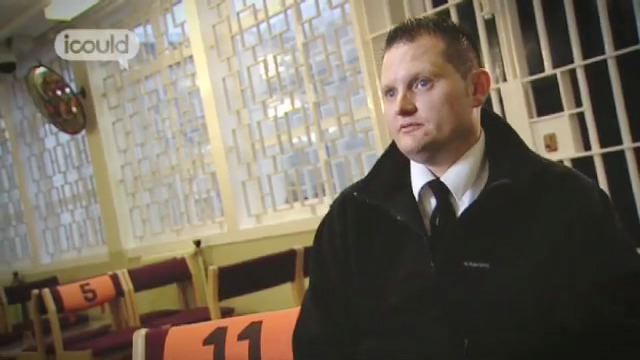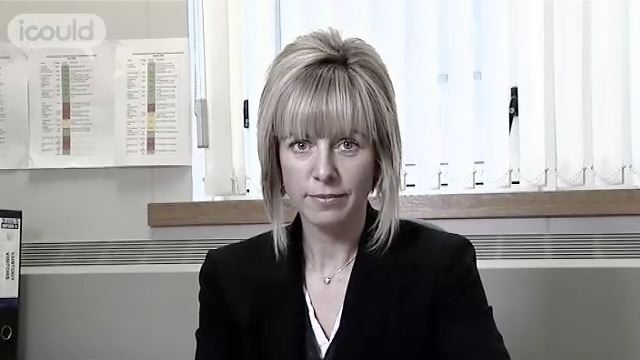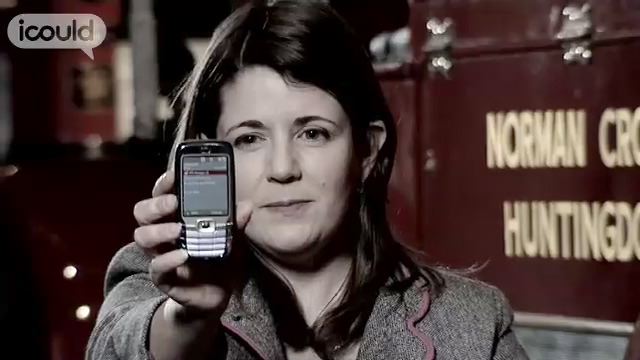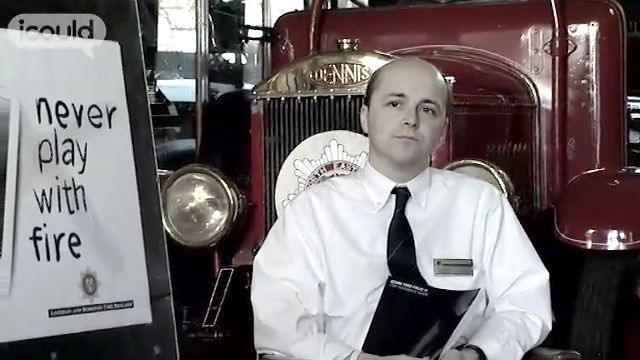Head of Community Safety
Lothian and Borders Fire and Rescue Service
David M
00:00:00 My name is David M, I’m head of community safety for Lothian and Borders Fire and Rescue Service and I work at service headquarters in Edinburgh. Community safety is about prevention, it’s about really reducing the number of fires in the first place so it’s really finding ways to make people safer in their homes, reduce the number of fires and also reduce the number of road traffic accidents we go to. So, I suppose in simple terms community safety is about preventing all the things we might respond to. It’s the sort of other side of the coin, if you like.
00:00:38 Actually when I was at school when I was 19, 20 studying for exams, I was a bit of a late developer. And all through school I didn’t really know why I was there. I left school with, you know, a handful of O grades which are like standard grades now or GCSEs. And I sort of thought, “Well, I’ll look for a job,” and I was lucky enough to get an apprenticeship as an engineer so I kind of fell into that and I liked fixing things so it was great, I really loved that job and did that apprenticeship. But all that time never thought about the fire service or any other career for that matter until really my apprenticeship came to an end and I really had to look for another job. That was it for me and I thought, “Well, what am I going to do?” And it was that point I think I realised why I need to go to school because I was trying to get a job, any job, but I couldn’t pick up a job very easily. It was really a quite difficult and people are looking for qualifications and the fact that I didn’t have qualifications had put me in a corner a wee bit and unless there was a job for my specific industry or my job I was struggling a bit so it was a bit of a kind of wake up call for me then.
00:01:50 So, I started doing some further studies at the Open University. I had quite an interest in computers so I thought about working in electronics and computers. So, I started doing an electronics degree with Open University but early on in that I realised that I just did not like working with maths. It was all maths stuff and I thought, “Not really for me.” But I was able to move over to something else and I started doing sciences. When I was going through that the opportunity to join the fire service came up so, although my academic path was taking one direction, my, you know, employment pathway was going in a different direction so I joined the fire service and thought, “Well, is this, you know, degree that I’m doing appropriate anymore, you know.” So, as it turned out science is really useful in the fire service so I just continued with it and then I joined the fire service.
00:02:46 It was interesting, you know, playing rugby really helped me because I had this really negative head on and it was a bit of a negative spiral that fed off itself and I wasn’t, you know, getting promoted, I wasn’t doing very well, I was ploughing along and I remember playing rugby and my brother played rugby with me in the same team and he seemed to score lots of tries and I didn’t seem to get many and I remember coming off the pitch one day and saying to him, “You know, you scored a couple of tries today but you’re really lucky, you know.” And he says, “Dave, it’s not about luck,” he says, “You make your own luck,” he says, “Watch what I do,” he says, “I run after the ball. When the ball gets kicked up the park I run after it,’ he says,” You don’t. You don’t chase it. You don’t chase the opportunities.” I think that probably was the turning point that I stopped thinking negatively and I started thinking positively about how I can make more luck and how, you know, feeling sorry for myself wasn’t going to do any good and no-one was going to come along with a magic wand and make it all better for me. The only person that could, you know, sort it out was myself and that was probably the best piece of advice I’ve ever been given. I’m not going to tell him that because he’ll never let me hear the end of it. ENDS
David M is a Firefighter and Head of Community Safety, he says “it’s about reducing the number of fires in the first place, finding ways to make people safer in their homes and reduce road accidents”. David did a Open University Science degree – “it turned out science is really useful in the fire service”.
More information about Senior officers in fire, ambulance, prison and related services
The UK average salary is £29,813
There are 37.5 hours in the average working week
The UK workforce is 47% female and 53% male
Future employment
- Liaises with other senior officials and/or government departments to determine staffing, financial and other short- and long-term needs;
- Prepares reports for insurance companies, the Home Office, Scottish Home and Health Department, and other bodies as necessary;
- Advises on the recruitment, training and monitoring of staff;
- Fire officers plan, direct and co-ordinate an operational plan for one or more fire stations, attend fires and other emergencies to minimise danger to property and people, arrange for the salvaging of goods, immediate temporary repairs and security measures for fire damaged premises as necessary;
- Ambulance officers plan, organise, direct and co-ordinate the activities of ambulance personnel and control room assistants, for the provision of ambulance services for emergency and non-emergency cases;
- Prison officers interview prisoners on arrival and discharge/departure, receive reports on disciplinary problems and decide on appropriate action, make periodic checks on internal and external security, and provide care and support to prisoners in custody;
- Revenue and customs, excise and immigration officers advise on the interpretation of regulations concerning taxes, duties and immigration requirements and enforce these regulations through monitoring of premises, examining goods entering the country to ensure correct duty is paid and establishing that passengers have the necessary authorisation for crossing national borders.
